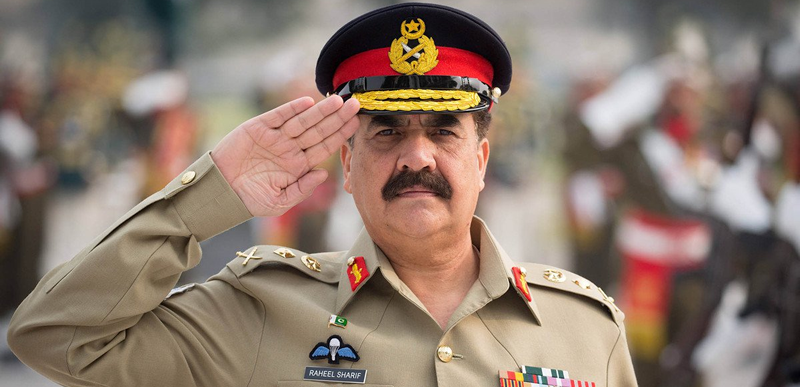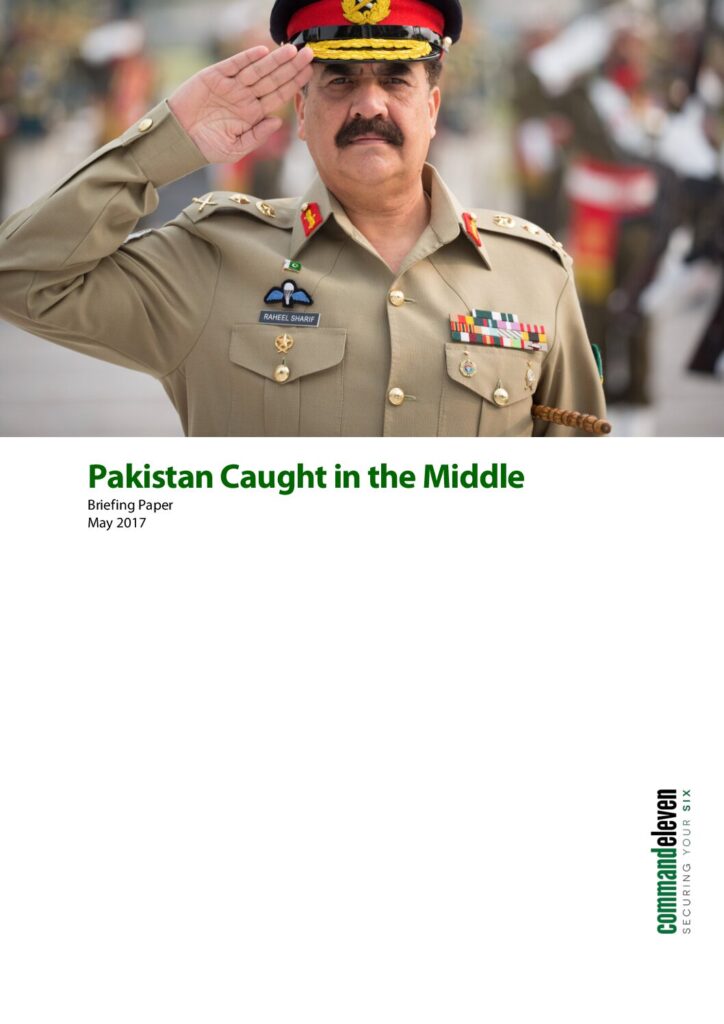Executive Summary
Pakistani General Raheel Sharif walked into a hornet’s nest when he stepped off a private jet in Riyadh two weeks ago to take command of a Saudi-led, 41-nation military alliance.
Things have gone from bad to worse since.
General Sharif had barely landed when Saudi Deputy Crown Prince Mohammed bin Salman dashed the Pakistani’s hopes to include Iran in the alliance that nominally was created to fight terrorism rather than confront Iran.
The general’s hopes were designed to balance Pakistan’s close alliance with Saudi Arabia with the fact that it shares a volatile border with Iran and is home to the world’s second largest Shiite Muslim community. General Sharif’s ambition had already been rendered Mission Impossible before he landed with Saudi Arabia charging that Iran constitutes the world’s foremost terrorist threat.
In a recent interview with the Saudi-owned Middle East Broadcasting television network, Prince Mohammed, who also serves as the kingdom’s defense minister, has toughened Saudi Arabia’s stance. Prince Mohammed appeared in line with statements by a senior US military official to hold out the possibility of exploiting aspirations of ethnic minorities in Iran to weaken its Islamic regime.
In doing so, Prince Mohammed and General Joseph L. Voltel, head of US Central Command, seemed to raise the specter of increased violence in Baluchistan, a volatile, once independent region that straddles both sides of the Iranian-Pakistani border, as well as in the Iranian province of Khuzestan, the Islamic republic’s oil-rich region that is home to Iranians of Arab descent.
Ethnic and sectarian proxy wars could embroil rivals China and India in the Saudi-Iranian dispute. The deep-sea port of Gwadar in Baluchistan is a lynchpin of China’s One Belt, One Road initiative, and a mere 70 kilometers from the Indian-backed port of Chabahar in Iran, viewed by Saudi Arabia as a potential threat to one of the most important sea routes facilitating the flow of oil from the Gulf to Asia.
The risk of China’s initiative as well as its regional rivalry with India becoming a Saudi-Iranian battleground appeared to increase with Prince Mohammed’s warning that the battle between the two regional powers would be fought “inside Iran, not in Saudi Arabia.”
In his interview, Prince Mohammed not only ruled out talks with Iran but painted the two countries’ rivalry in sectarian terms. The prince asserted that Iran, a predominantly Shiite country, believes that “the Imam Mahdi (the redeemer) will come and they must prepare the fertile environment for the arrival of the awaited Mahdi and they must control the Muslim world…. “How do you have a dialogue with this?” Prince Mohammed asked.
Saudi Arabia had already signaled its support for Iranian dissidents when last July former Saudi intelligence chief and ambassador to the United States and Britain, Prince Turki al-Faisal, attended a rally in Paris organized by the exiled People’s Mujaheddin Organization of Iran or Mujahedin-e-Khalq, a militant left-wing group that advocates the overthrow of Iran’s Islamic regime and traces its roots to resistance against the shah who was toppled in the 1979 revolution. “Your legitimate struggle against the (Iranian) regime will achieve its goal, sooner or later. I, too, want the fall of the regime,” Prince Turki told the rally.
Since then, General Voltel, avoiding any reference to sectarianism, told the US Senate Armed Services Committee, that “in order to contain Iranian expansion, roll back its malign influence, and blunt its asymmetric advantages, we must engage them more effectively in the ‘grey zone’ through means that include a strong deterrence posture, targeted counter-messaging activities, and by building partner nations’ capacity… (We) believe that by taking proactive measures and reinforcing our resolve we can lessen Iran’s ability to negatively influence outcomes in the future,” General Voltel said.
Prince Mohammed did not spell out how he intends to take Saudi Arabia’s fight to Iran, but a Saudi think tank, the Arabian Gulf Centre for Iranian Studies (AGCIS) argued in a recent study that Chabahar posed “a direct threat to the Arab Gulf states” that called for “immediate counter measures.”
Written by Mohammed Hassan Husseinbor, identified as an Iranian political researcher, the study, published in the first edition of AGCIS’ Journal of Iranian Studies, argued that Chabahar posed a threat because it would enable Iran to increase greater market share in India for its oil exports at the expense of Saudi Arabia, raise foreign investment in the Islamic republic and increase government revenues, and allow Iran to project power in the Gulf and the Indian Ocean.
Mr. Husseinbor suggested Saudi support for a low-level Baluch insurgency in Iran could serve as a countermeasure. “Saudis could persuade Pakistan to soften its opposition to any potential Saudi support for the Iranian Baluch… The Arab-Baluch alliance is deeply rooted in the history of the Gulf region and their opposition to Persian domination,” Mr. Husseinbor said.
Noting the vast expanses of Iran’s Sistan and Baluchistan Province, Mr. Husseinbor went on to say that “it would be a formidable challenge, if not impossible, for the Iranian government to protect such long distances and secure Chabahar in the face of widespread Baluch opposition, particularly if this opposition is supported by Iran’s regional adversaries and world powers.”



